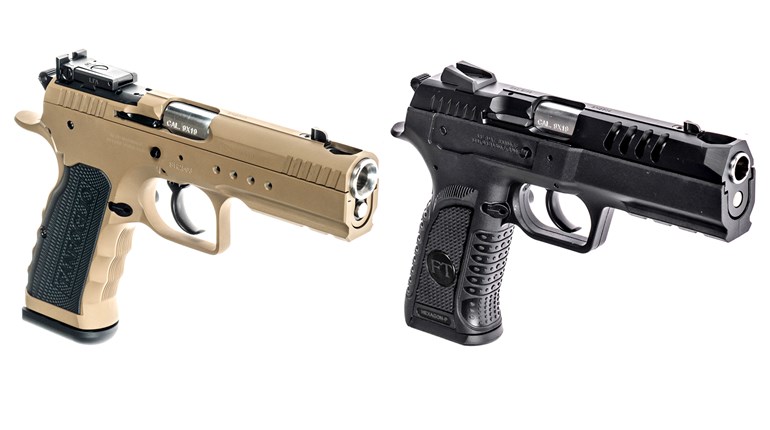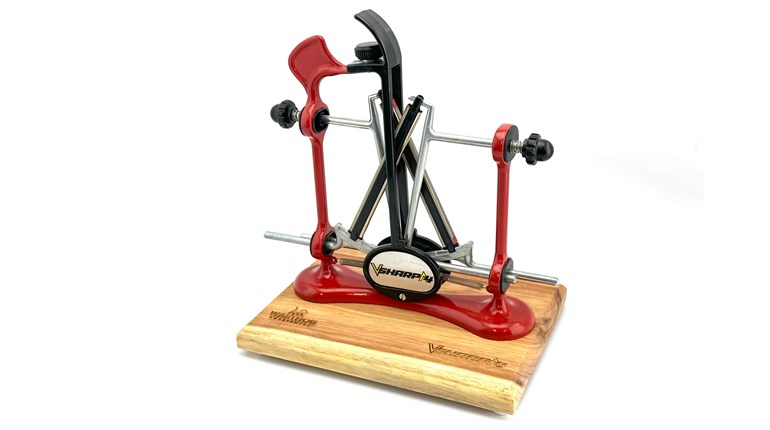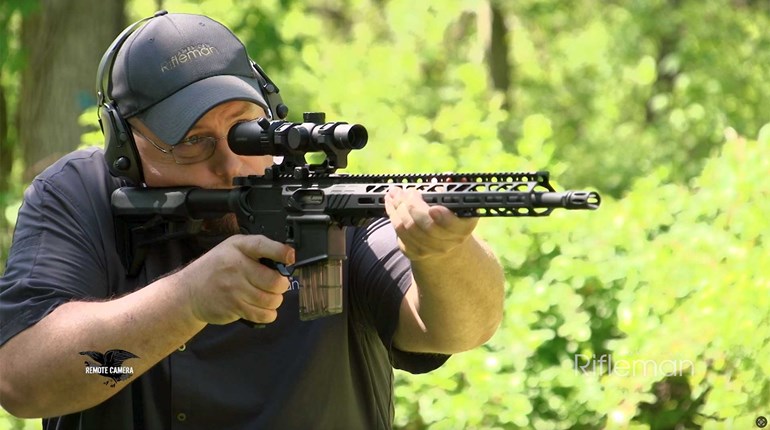
Ten, 50, 100 or 1,000? There is no magic number. A malfunction can occur with any ammunition, in any gun, at any time. Guns change over time, and ammunition changes from lot to lot.
About 15 years ago, I was conducting police handgun qualifications. Against my advice, we were shooting reloaded ammo because our chief thought it was fiscally responsible. (He also thought we should wear our campaign hat during traffic stops even though it blocked our vision.) We'd fired about 1,800 rounds when there was a weird noise from an officer's Glock. He turned and looked at me much like a cow looking at a new gate. His gun had exploded. The department placed an order with Federal the next day.
A few months back, I was testing an FNH FNX-9 pistol with Fiocchi 115-grain 9 mm FMJ ammo. I was on round 42 when the gun made a weird noise and I felt like I'd been hit in the face with a handful of sand. There was a case-head separation, and the pistol locked up. Was it the gun, the ammo or both? I've seen FNX-9s digest thousands of rounds of ammunition, but I'd only fired 42 rounds of that particular Fiocchi load. In this case, I trusted the gun; the ammo—not so much. I've seen this problem with other ammunition, but it took a lot more than 42 rounds for it to happen.
Back when I was a monster hunter, I arrived on scene one night just seconds after a shooting. One bad guy was on his back with a bullet hole in his chest. Beside him was a pistol with a stovepipe jam. Maybe the jam was what took him out of the fight—he was dumb enough to lead a life of crime, so I wouldn't be surprised if he didn't know how to clear it. Maybe the jam occurred after he had the air let out of him. We'll never know. Just to be sure, when trying to establish ammo reliability, shoot the gun like you would shoot it in a real defensive situation. Shoot with your strong hand, your weak hand, with both hands and from unconventional positions.
Recently I was testing a North American Arms Guardian in .32 NAA. The first round I fired caused a stoppage. After that, I fired 250 rounds without a single malfunction. The one hiccup was very likely due to the gun being brand new. Point is, before trying to establish the reliability of defensive ammo, break in your handgun. Fire at least 100 rounds from a semi-auto and at least 50 from a revolver. Itty-bitty guns are notoriously finicky when it comes to ammunition, so fire twice as many rounds as you normally would when testing reliability.
Sometimes, malfunctions are shooter induced. While test-firing 200-grain Cor-Bon +P .45 ACP ammo in my custom LST Gaboon 1911, the slide lock engaged with four rounds remaining. I thought, "That's weird." I released the slide and fired another round. The slide locked back again. Long story short, I shoot with my left hand very far forward, and the recoil was intense enough to cause the knuckle of my thumb to engage the slide lock during recoil. That might be a training issue, but regardless—with me doing the shooting, that ammo could not be considered reliable in that gun. Lesson: Consider everything—not just the ammo—when trying to establish ammunition reliability.
You should also recognize that most handguns carried or kept for personal protection are probably in a very clean state most of the time. I doubt many folks rely on a handgun that has not been cleaned for several hundred rounds to protect them. For this reason, it makes no sense to determine the reliability of your defensive handgun through some sort of endurance test—unless you plan on rarely cleaning it.
If you keep your handgun clean in preparation for a wookalar attack, then you should test the ammo you are considering in a clean gun. Most defensive shootings will consume less than 25 rounds, so it makes sense to test 25 rounds, clean the gun and then test another 25. By the same token, if you leave your gun dirty, test the ammo in a dirty gun.
Like it or not, we are all victims of our pocketbooks. We might carry a handgun for personal protection, but we also have to pay cell phone bills (for the wife and text-messaging teens), buy beer (for our buddies when they visit) and stock up on video games (for the kids, supposedly). Good defensive handgun ammunition is expensive—some costs as much as a dollar a round. I know you cannot put a price on your safety, but we all live somewhere between being able to afford a single box of ammo and a full-time bodyguard.
Establishing an ammunition's reliability in your self-defense handgun should start somewhere around 50 rounds with a revolver and 100 rounds with a semi-automatic. Increase these amounts as your wallet and lifestyle allow to build confidence in your gun and skill.
You should test the ammo with your gun in the same state of cleanliness it will be carried while it's waiting on that bad cloud to arise. Test it in conditions and from positions you might expect to use it. And you should replace your carry ammo at least once or, better yet, twice per year. This will give you a chance to re-evaluate the load's reliability.
Never assume that a certain type or brand of ammunition will be reliable in your gun simply because it works in a friend's gun, it's what your local police use or because it was recommended by the clerk at the gun store. There is only one way to test reliability, and that's to shoot the ammo yourself in your gun. The more you shoot it, the more confidence you will have. Now, go make some empty cases.





































